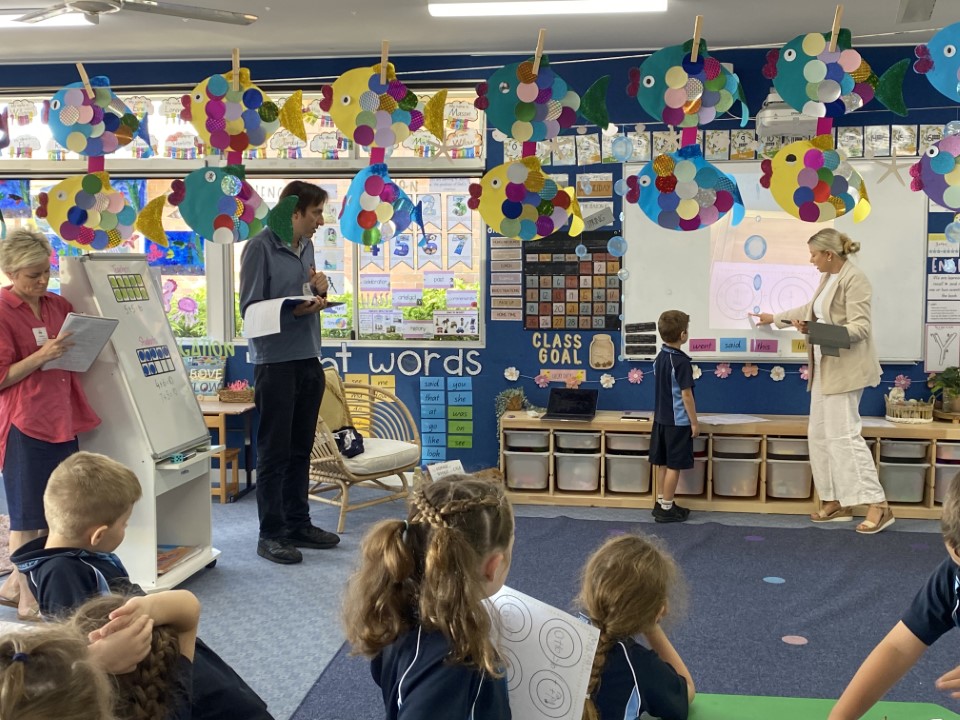Students at 15 Brisbane Catholic Education (BCE) schools are sweating it out in the classroom thanks to a partnership with Monash University.
But it is not basketball or athletics getting the students active – instead, they are engaging in ‘sweaty brain time’ - a new approach to teaching and learning maths.
The ‘inquiry approach’ sees students encouraged to have time to ponder challenging problems and work through solutions independently.
And since the process requires some hard thinking, it has been nicknamed ‘sweaty brain time.’
The 2023 initiative has come out of a BCE partnership with Monash University’s Dr James Russo and Jane Hubbard to improve the teaching and learning of maths for primary students through an inquiry approach to problem solving with ‘Challenging Tasks.’
Challenging Tasks are open-ended maths problems which typically have more than one solution. These thought-provoking problems encourage students to problem-solve and aim to include all students in each lesson. Students are often challenged to work in new ways, with an emphasis on mathematical thinking and reasoning.
St Andrew’s Catholic School Ferny Grove teacher Sandra Fleming said the innovative way of teaching maths has opened her eyes to “what a maths lesson can be.”
“It is an open-ended approach that not only caters for all learners, but makes maths engaging, rich and relevant for all my learners,” she said.
St Andrew’s Catholic School Ferny Grove teacher Janita Connolly described the innovative approach as “something special.”
“I’m always surprised by the capabilities of our students and the maths they unpack and explore in ways I could not have predicted,” she said.
BCE’s Mathematics Education Officer Alana Bandholz said schools have been engaging with the Monash University sessions in-person, as well as attending virtual workshops to support their learning in how to teach Challenging Tasks in their maths lessons.
“Students move from confusion to clarity in a Challenging Task lesson, which is the opposite of a ‘traditional’ maths lesson where students are often given tasks to solve that increase in complexity,” she said.
BCE Mathematics Education Officers Carly Millichap and Alana Bandholz have been working alongside the 15 schools and have noted the remarkable change in learning and teaching practices in maths classrooms.
“What is remarkable is hearing stories from our schools of the renewed engagement and achievement of their students in the maths classroom,” she said.
“Teachers are noting that they are surprised by students who previously have disengaged in the maths classroom are now displaying remarkable mathematical thinking and demonstrations.”
St John Vianney’s Primary School Manly Principal Katherine McKay said the change in parent thinking and understanding of maths teaching and learning was remarkable.
“Our parent community is also noting the positive change in the way our students are speaking and learning mathematics,” she said.
“A huge shift for us has been parent education as well, teaching our parents that maths is looking different at our school.”
BCE’s work and engagement in Challenging Tasks was presented at the Queensland Association of Mathematics Teachers conference in June 2023, and will be next presented at the Mathematical Association of Victoria’s annual conference in December.

Teachers Carly Millichap, Tara Louli, Jessica Multon, and Alana Bandholz with Monash University's Dr James Russo (third from left) and Jane Hubbard (fourth from left).